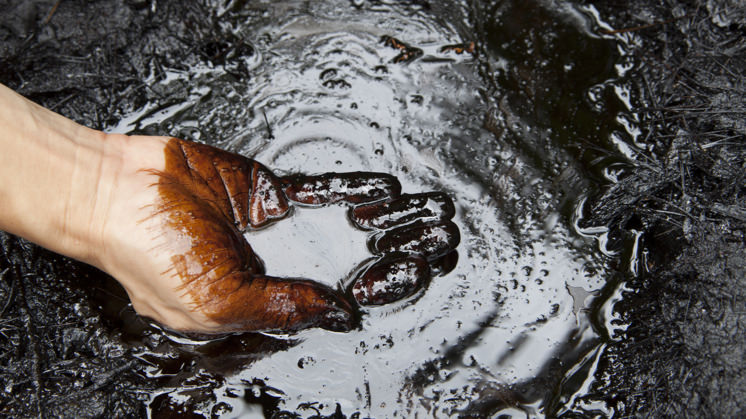
ENVIRONMENTAL JOURNALISM
Environmental journalism: the best way to raise awareness about climate change
#environmental sustainability #leisure #social transformation
An aware society is the best weapon against climate change. And this is where environmental journalists play a crucial role; they inform and they raise awareness among people. Sustainability, biodiversity and renewable energies are some of the topics covered by professionals that are increasingly more essential.

One of the objectives of environmental journalism is to wake up an eco-awareness between the population.
In modern democracies, public authorities need public opinion consensus to promulgate their policies. Policies related to sustainability are no exception. As a society, environmental policies can only progress if people are aware about the health of the planet, sustainable development and the fight against climate change. That's where environmental journalism plays a decisive role.
WHAT IS ENVIRONMENTAL JOURNALISM? OBJECTIVES
Although each expert brings his or her own unique style, environmental journalism can be defined as current affairs journalism related to nature and the environment, especially the impact of human activity on their environment, with the aim of raising awareness among people.
In addition to informing and raising awareness among people in society, other environmental journalism objectives include:
- Generating debate on issues related to the environment.
- Promoting among the population.
- Providing synergies to topics ignored in the general media.
- Creating sinergias among members of the public, communicators, institutions, NGOs and any agents involved in environmental issues.
- Promoting the approval and improvement of environmental policies.
An example of the importance of environmental journalism can be seen in the fact that climate change has recently become the main concern for European people, surpassing global terrorism. This is the main conclusion of a survey – the Eurobarometer – conducted by the European Parliament at the end of 2019. A change in priorities that not only paves the way for more effective policies to counter global warming, but also encourages companies to be responsible for the impact of their actions on the environment in order to maintain their reputation
ENVIRONMENTAL JOURNALISM TOPICS
In addition to climate change, environmental journalism addresses a wide range of topics, covering local issues about the specific circumstances in each country. These may include:
Biodiversity
The global biodiversity crisis is an issue that environmental journalists cover.
Water resources
Information related to water health and water resource management,, etc.
Pollution
Emissions and spills, fossil fuels, pollution from plastics, etc.
Natural disasters
The fires in Australia, Hurricane Dorian and the heat waves that scorched Europe in summer were some of the catastrophes that featured in 2019.
Environmental policies
The new environmental policies approved by the administrations are analysed with a magnifying glass.
Initiatives and events
The actions of NGOs, climate negotiations – for example, the COP—, the Sustainable Development Goals (SDGs), etc.
Renewable energies
Any news related to the rise of non-polluting energies captures the attention of these professionals.
Sustainable development
News related to the impact of our actions on the environment and how to minimise it for future generations.
Research
Studies and reports on the environment prepared by the institutions are a great source of information.
Sustainable habits
Information that aims to encourage recycling, composting and reducing the use of plastics through advice.

The environmental journalists to follow.
SEE INFOGRAPHIC: The environmental journalists to follow [PDF]External link, opens in new window.
THE BEST ENVIRONMENTAL REPORTS OF 2019

At the end of 2019, Unearthed, a Greenpeace United Kingdom project aimed at acknowledging the best environmental journalism, published a list of the nine most prominent reports in the worldExternal link, opens in new window. according to its criteria. Two of the award-winning reports are:
- Leaked recordings show that the US oil lobby successfully pressured the government to criminalise protests against pipelines: in August 2019, United States newspaper The Intercept published a leaked audio in which the oil lobby, in a private conference, admitted its influence on law-making in different US states to criminalise protests against oil and gas pipelines in response to the famous protests against the Dakota Access pipeline some years ago.

Pressure from the oil lobby to influence law making was brought to light by ‘The Intercept’.
- How the global beef trade is destroying the Amazon: An investigation carried out by The Bureau of Investigative Journalism, el periódico The Guardian and Repórter Brasil newspaper found that a Brazilian company was raising cattle in protected areas of the Amazon, causing deforestation. It should be added that this company is not the only one involved in this illegal practice and it is estimated that up to 5,800 km2 of forests are cut down every year for cattle farming in the Amazon and other areas.
Other distinguished reports that won Unearthed awards in 2019 include the research carried out in Reserve (Louisiana), the town known as Ciudad Cáncer (The Guardian), the environmental risks of flaring — burning natural gas when extracting — (NBC Left Field) and the story of how a large Icelandic fishery bribed Namibian officials to ensure access to fishing quotas (Stundin).
